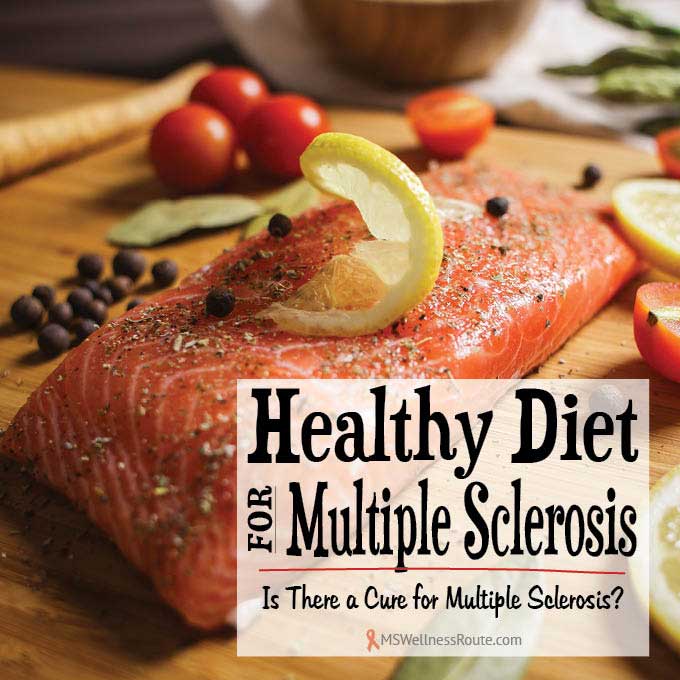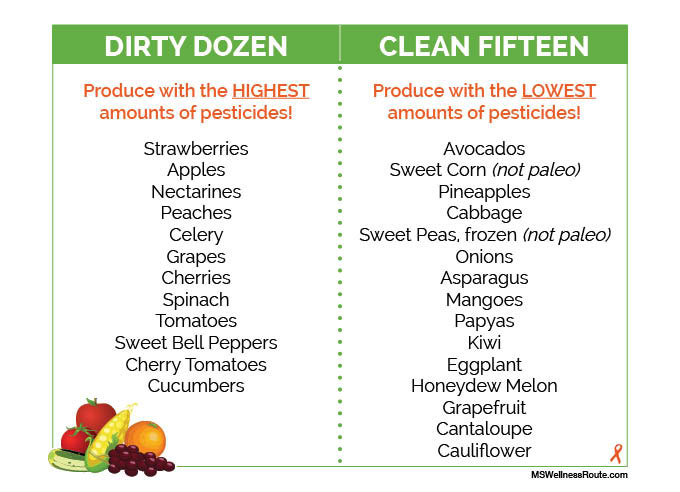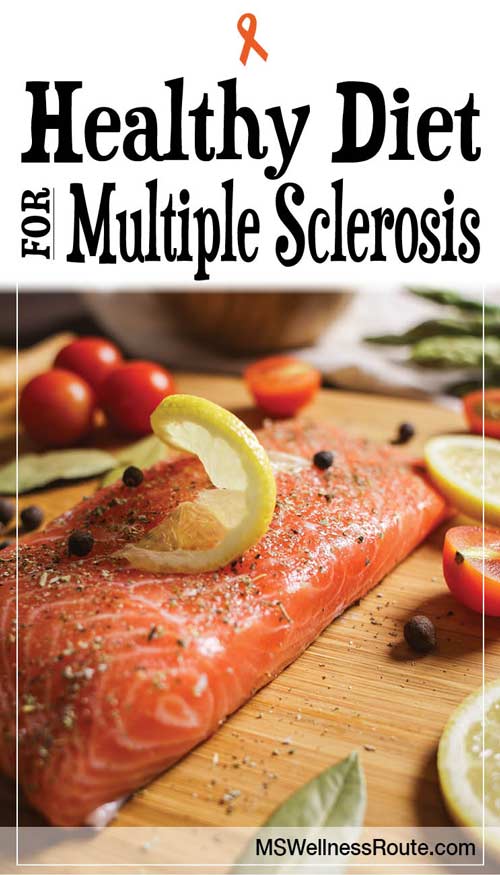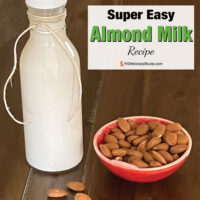Last Updated on December 7, 2023 by Cathy
Healthy Diet for Multiple Sclerosis
This is part 3 of a series, Is there a cure for multiple sclerosis (MS)? MS has been linked to an unhealthy gut, improving your gut bacteria with a healthy diet for multiple sclerosis could put it into remission.
Multiple Sclerosis (MS) is a horrible autoimmune disease that attacks people, mostly women, in the prime of their lives. It attacks the nervous system, spinal cord, and optic nerve, never knowing if you’re going to wake up blind or paralyzed the next day.
Most people with MS have a form called remitting-relapsing MS (RRMS). RRMS is when you have an attack followed by recovery time which can take months to recover. After 10-20 years RRMS can progress to secondary progressive MS (SPMS). There won’t be as many relapses but the disease continues to progress.
Neurologists are happy to promote and push their MS drugs, but after reading the horrible side effects it sounds worse than the disease itself. Now, I’m not telling you to not go on any MS drugs, it’s an individual choice. MS drugs won’t stop MS progression if it works it only slows MS down.
I want to share with you a natural approach to eating a diet to manage multiple sclerosis. How does stopping the progression and reversing the symptoms sound? Just by eating fresh, natural foods and making lifestyle changes, this could happen to you!
Let’s get started…
Diet for Multiple Sclerosis
Our standard Westernized diets are full of processed, artificial, and toxic ingredients that your bodies aren’t meant to be digested. Plus with all the chemicals around us, we are living in a very toxic world. It’s no wonder our bodies are sick.
First (and easiest) stop putting food that is harming you into your body. Stop eating gluten, processed foods, refined sugar, refined carbohydrates, foods causing any sensitivities, conventional meats, preservatives, and antibiotics. Also, begin removing as many environmental toxins as possible.
No more eating at fast-food restaurants or quick and easy prepackaged dinners. You will need to start planning your meals, reading ALL labels, and cooking at home. It sounds a little overwhelming but over time you will become a pro.
Second, start removing as many chemicals and heavy metals as possible.
- Body Products – deodorant, toothpaste, soap, shampoo, makeup, etc.
- Heavy Metals – aluminum, lead, mercury, etc.
- Household Products – air fresheners, cleaning supplies, laundry products, paint, etc.
- Outdoor Products – carbon monoxide, fertilizers, pesticides,
- Mold
- Plastic – use plastics that are BPA-free
- Water – city water has chemicals, use a filtration system like Britta
A healthy diet for multiple sclerosis should include:
Replace foods causing harm with nutrient-dense foods so your body can start healing. Begin eating a diet with:
- Fresh ground flaxseed is high in Omega 3’s.
- Garlic has many benefits like antibacterial, antiviral, antifungal, and antioxidant.
- Grass-fed and finished meat including organ meat (offal).
- Healthy fats (avocados, coconut oil, nut oils, animal fats, canned salmon, and sardines).
- Herbs and spices that fight inflammation like ginger, turmeric, cloves, and rosemary.
- Moderate amounts of soaked nuts.
- Organic fruits and vegetables to avoid pesticides.
- Organic, pasture-raised poultry.
- Wild-caught fatty fish (salmon, mackerel, and sardines).
- and… Drink lots of water to flush out toxins.
If you can’t afford natural or organic products, do what you can and don’t stress over it. Stress can cause an MS flare plus it feeds Candida and bad bacteria. If possible purchase organic if it’s on the EWG’s Dirty Dozen list. These are fruits and vegetables with the most pesticides.

Vegetables
Vegetables are now your main meal, eat a wide variety to get as many vitamins and nutrients as possible. Include dark leafy greens, and colorful, and sulfur vegetables at every meal. Yes, that includes breakfast.
Don’t think of breakfast as your typical carbohydrate breakfast of cereals and doughnuts. Remember it’s best to eat lower carbs since they break down into sugar. Instead, drink a green smoothie or green juice. I like quick and simple so I eat dinner leftovers or vegetable soup for breakfast.
To keep your blood sugar level and to stay satisfied until lunch include protein and good fat as part of your breakfast. One idea is to make smaller patties of Spinach Turkey Burgers, which include a dark leafy vegetable, and ground flaxseed.
Take shortcuts by doubling recipes and saving half in the freezer for another night. Save a portion of dinner for tomorrow’s lunch. ALWAYS keep quick snacks around (veggies with almond butter, fruit, nuts, avocado, homemade granola, etc.). If you don’t keep snacks around it will be too tempting to eat something you shouldn’t.
When leaving the house, don’t leave hungry and take something with you to eat. You never know if you will be out longer than planned. There are a couple of convenient snack bars you can keep in your purse or desk. Check out my page Healthy Foods And Snacks
Fermented Vegetables
Eating fermented foods is very popular. However, eating a diverse range of fruits, vegetables, herbs, and spices is beneficial for overall health and well-being. While fermented foods can contribute to a healthy gut microbiome by providing probiotics, which are beneficial bacteria, a balanced diet that includes a variety of plant-based foods offers numerous advantages for your health. Here are some reasons why consuming fruits, vegetables, herbs, and spices is essential:
Here are some reasons why consuming fruits, vegetables, herbs, and spices is essential:
- Fruits and vegetables are rich in essential vitamins, minerals, antioxidants, and fiber.
- Fruits and vegetables are excellent sources of dietary fiber.
- Plant foods are packed with antioxidants, which help neutralize harmful free radicals in the body.
- Fruits, vegetables, herbs, and spices contain phytochemicals, which are natural compounds that have many health benefits.
- While fermented foods contribute probiotics to the gut, fruits and vegetables provide prebiotics, which are substances that nourish and support the growth of beneficial bacteria.
- A diet rich in fruits and vegetables is associated with weight management and lower calorie intake.
- Consuming a diet rich in fruits and vegetables is linked to a lower risk of cardiovascular diseases.
- Some fruits and vegetables, especially those rich in antioxidants like berries and leafy greens, have been associated with cognitive function and a reduced risk of age-related cognitive decline.
Continue On…
Next week I’ll continue with this series of the 4 Rs of functional medicine. This time I’ll go into detail about my visit to a functional medicine provider. Once I started seeing him my MS symptoms started to reverse even after more than ten years of suffering from them.
In case you missed them, here are the links to parts one and two:
Part 1 – Is There a Cure for Multiple Sclerosis
Part 2 – The 4 R’s of Health
Get Your Free Foods to Eat ~ Foods to Avoid
Get the password for my library including the Foods to Eat ~ Foods to Avoid here by filling out this form:
Want to remember this health tip? Pin it to your favorite Pinterest board!

Is There a Cure for Multiple Sclerosis? Part 3 – Healthy Diet for Multiple Sclerosis





